List of Top 15 Most Influential Leaders In European History, Better or worse, the past of a country is generally influenced by politicians and kings–whether they are directly appointed prime ministers or autocratic monarchs.
Europe has seen a variety of rulers of different kinds, each with its characteristics and achievements. These are some of the most important characteristics in chronological order.
European history spans from around 500-1400 CE and is historically considered the Middle Ages. This was first used by historians of the 15th century to describe the era from the decline of the West Roman Empire.
The era is often seen as having its internal divisions: early, late or early, middle, or high or late.
15). VLADIMIR LENIN
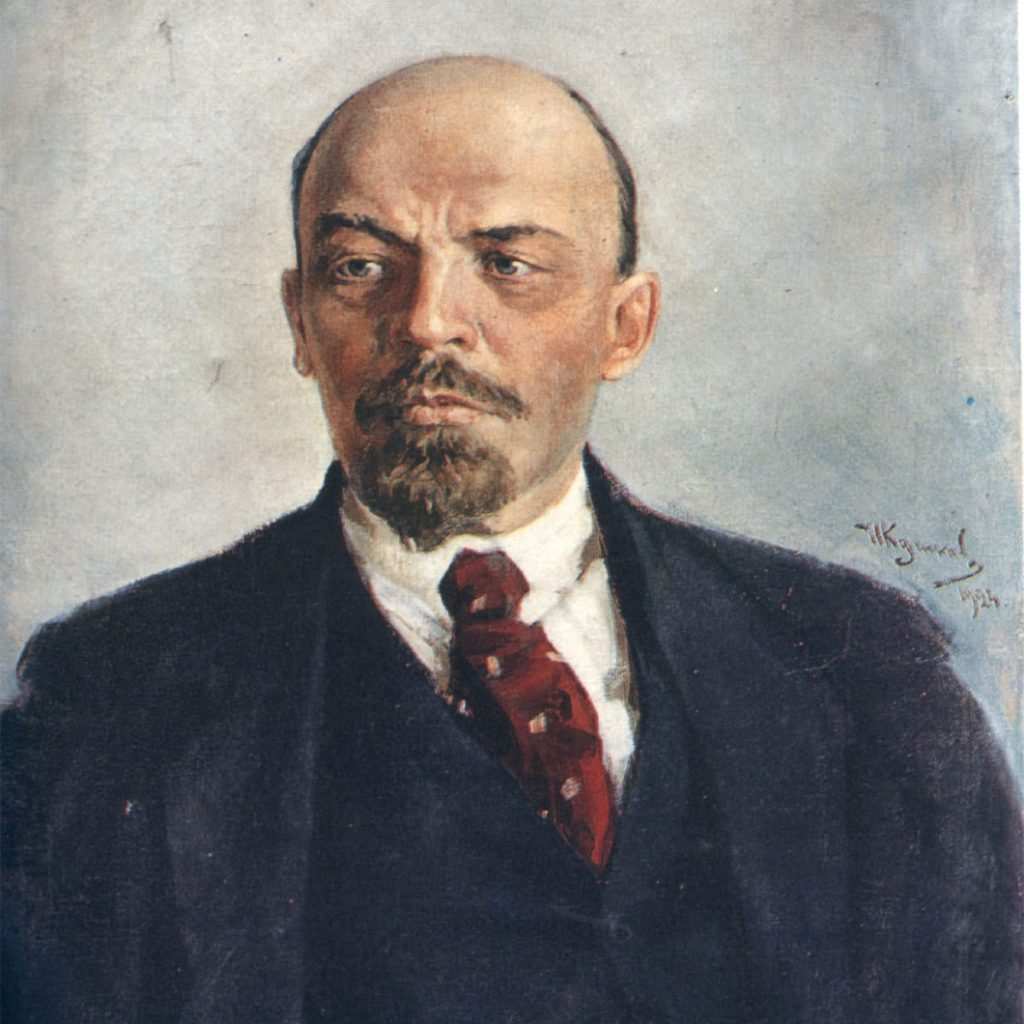
From 1917 to 1924, and from 1922 to 1924, he was head of government of Soviet Russia. Russia and then the larger Soviet Union became a single-party communist state ruled by the Russian Communist Party under his administration.
During the October revolution, when the Bolsheviks overthrew the previous regime, he returned to Russia until 1917 the February revolution forced the Zar to set up a provisional government.
Lenin’s Bolshevik government first held authority, but by 1918 it had consolidated control in the nascent Communist Party with the left Socialist socialists, elected soviets, and a multi-party constituent assembly. In Gorki Lenin died his health impairment, and Joseph Stalin succeeded him as the dictator of the Soviet government.
How does a leader make a person? How can people be influenced and inspired? In many cases, a leader has inspired and united millions for a shared purpose — be it war, mankind, revolution, renaissance, etc.
Some politicians influenced some people for the better. In the case, a leader has tremendous power, courage,m, and faith that encourages many to obey him in turn. A lot of people feel that it is easy to become a dictator, yeah. However, it is more difficult to retain this status and function until the target is attained.
14). OTTO VON BISMARCK
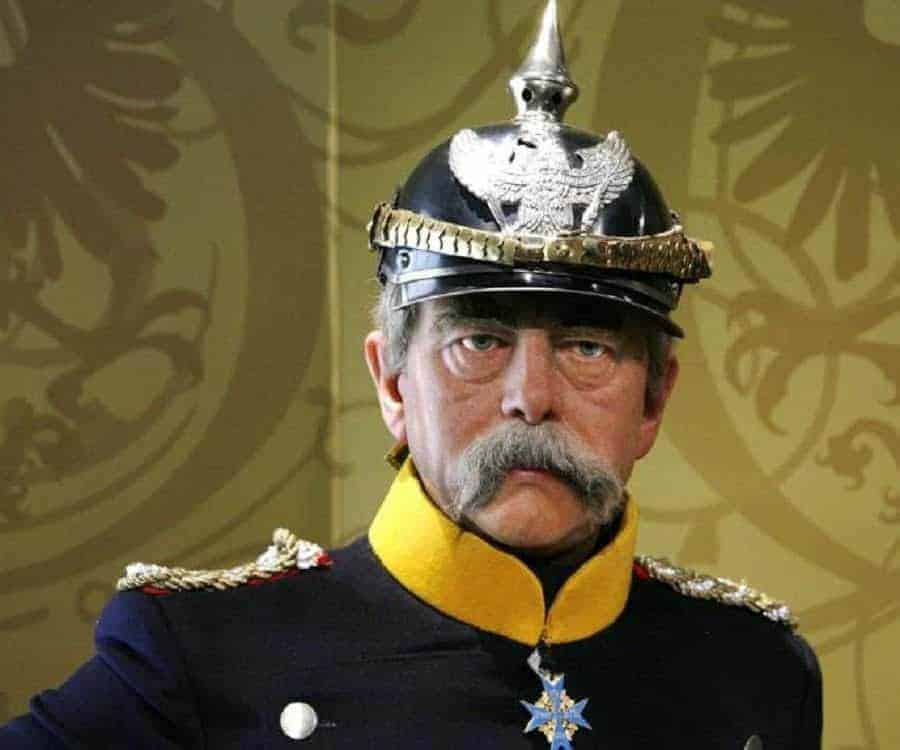
A conservative German statesman, Otto Eduard Leopold, Prince of Bismarck, Duke of Lauenburg known as Otto von Bismarck, was a pioneer in the unification of Germany in 1871 and his first chancellor until 1880.
After the victory over Austria, it abolished the German supranational confederation, instead of establishing the first German nation-state North German Confederation which aligns behind Prussia with the smaller Northern German states.
He formed the German Empire and united Germany, having received the help of the independent South German states in France’s confederation defeat. Bismarck skilfully used Germany’s balance of power politics in the stable West under Prussian control in 1871.
To the German nationalists, Bismarck had become a hero; they had constructed many monuments to honor the new Reich’s founding.
13). NAPOLEAN
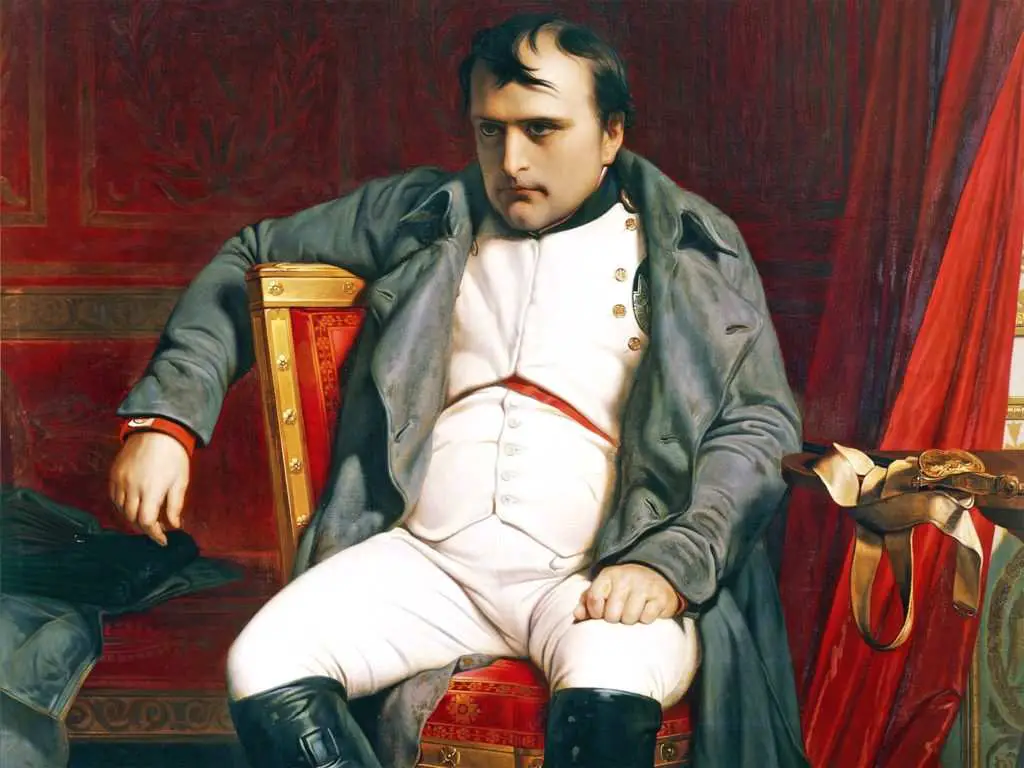
A French statesman and military leader, Napoleon Bonaparte born Napoléon di Buonaparte was renowned for commanding the artillery during the Revolution.
For over a decade Napoleon dominated European and global affairs, leading France in the Napoleonic Wars against a series of coalitions.
Napoles broke up this alliance, which led to the fall of the Holy Roman Empire, with decisive successes during Ulm wars, and a remarkable victory over the Russian and Austrian empires.
During the war of the Fifth Coalition in 1809, the Austrians and the British again challenged French, but Napoleon consolidated his grip on Europe after winning over Wagram in July.
In the Battle of Leipzig in October 1813, a lengthy military camp culminated in a large Allied army that defeated Napoleon; his tactical victory at the minor Battle of Hanau led him into French soil.
12). FREDERICK THE GREAT
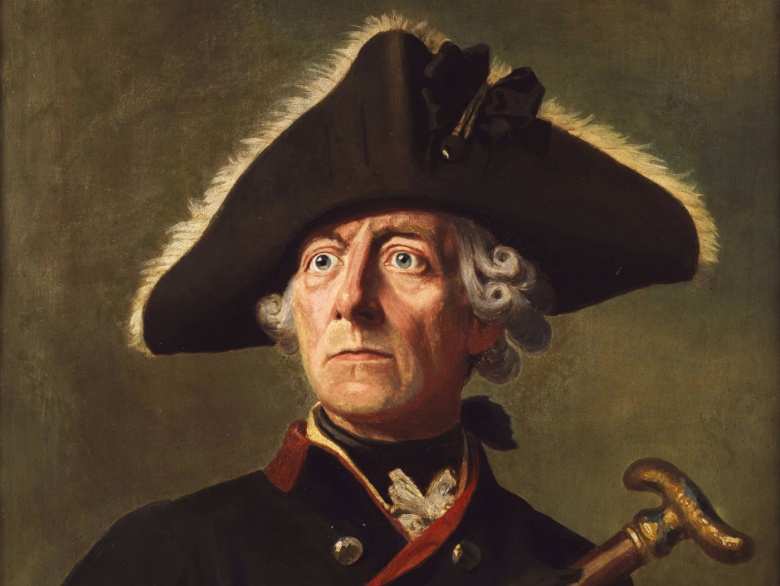
In 1772, after gaining hegemony over most of the Prussian traditional nations, Frederick became the last Holocaust ruler to be elected King of Prussia. Frederick welcomed people of diverse nationalities and religions to move to Prussia, while in Western Prussia he took draconian steps to suppress Catholic Poles.
Since Frederick died childlessly, his nephew, Frédéric William II, succeeded. Almost all the Germans from the 19th century made Frédéric a romantic example of a gloriesome guerrilla fighter, praising his leadership, administrative efficiency, devotion to work, and the progress of Prussian building into a strong European republic.
Historians today regard Frederick once more in the 21st century as one of the greatest generals of the 18th century, one of the best-trained monarchs of his generation and a powerful and skillful leader who laid the groundwork for a dominant force for the Kingdom of Prussia to challenge the Austrian Habsburgs for their German leadership.
11). LOUIS XIV
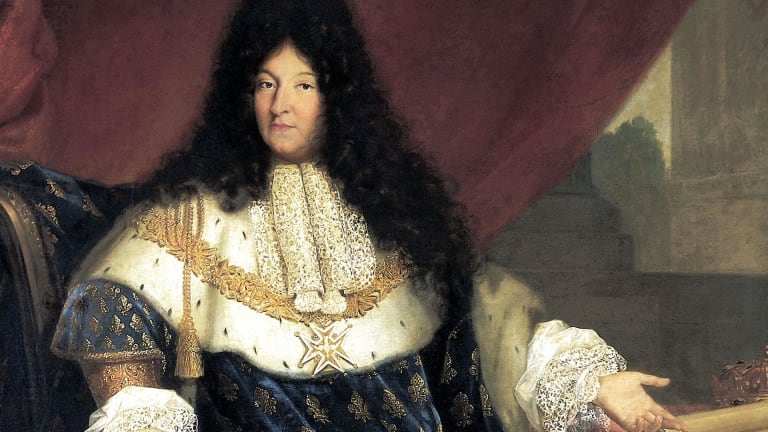
Between 14 May 1643 until he died in 1715, Louis XIV, known as Louis the Great or the Sun King, became king of France.
In the European era of absolutism, Louis XIV’s France was emblematic. In 1661, after the death of his head secretary, the Italian Cardinal Mazarin, Louis began his rule of France.
Thus, he became one of the most powerful French monarchs and established in France a system of absolute monarchical rule which lasted until the French Revolution.
During the long reign of Louis, France was the European leader and its military strength was regularly asserted.
10). ELIZABETH I
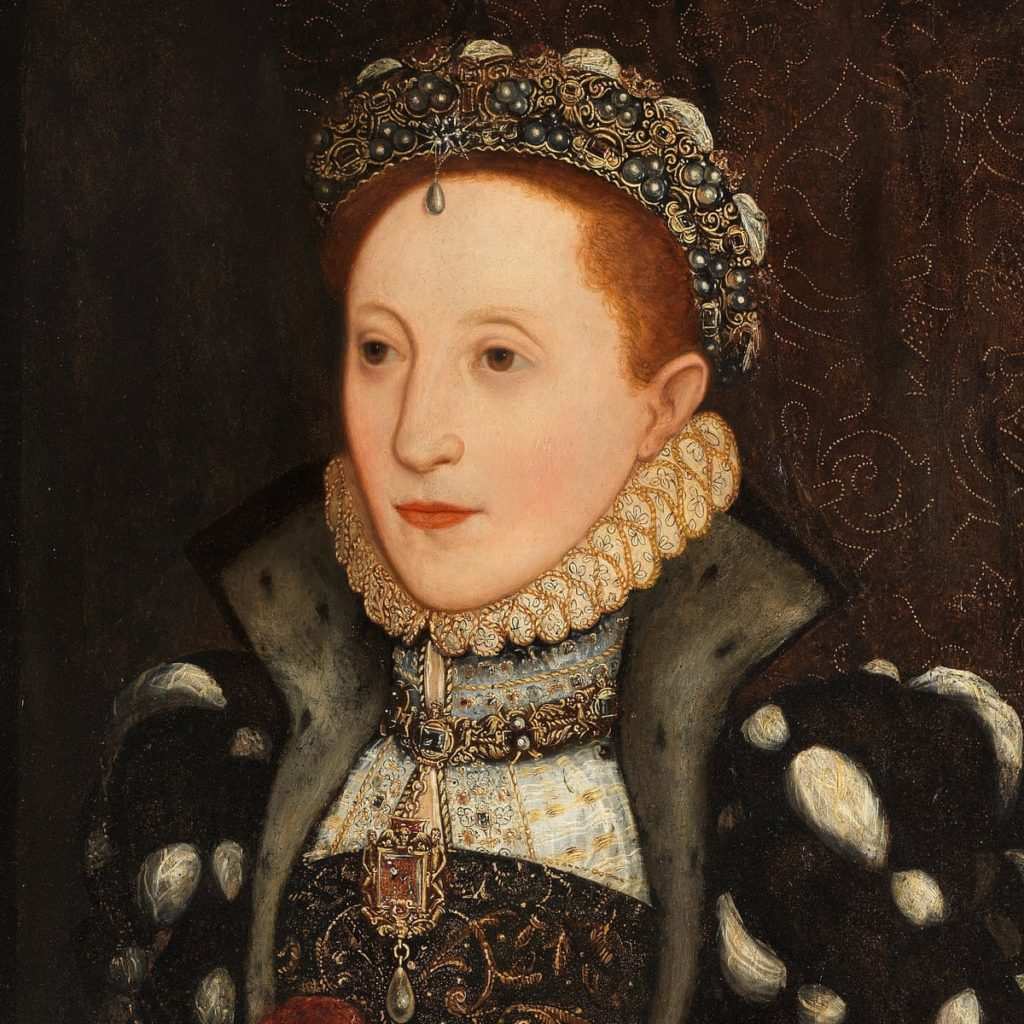
From 17 November 1558 until her death on 24 March 1603, Elizabeth I became Queen of England and Ireland. Elizabeth was the last of Tudor ‘s five monarchs, sometimes called the Virgin Queen, Gloriana, or Good Queen Bess.
She was his second son, Henry VIII ‘s daughter and Anne Boleyn’s, two years and a half after Elizabeth’s marriage. Elizabeth ‘s wife was executed.
Until his death in 1553, their half-brother, Edward VI, ruled to legate the Lady Jane Grey ‘s crown and dismissed the demands of his two wives, the Roma-Catholic Marie and the younger Elizabeth, despite the antithesis of the substantive statute. Elizabeth ascended the throne in 1558 after Mary ‘s death and went on to rule with good guidance.
9). CHARLES V OF THE HOLY ROMAN EMPIRE
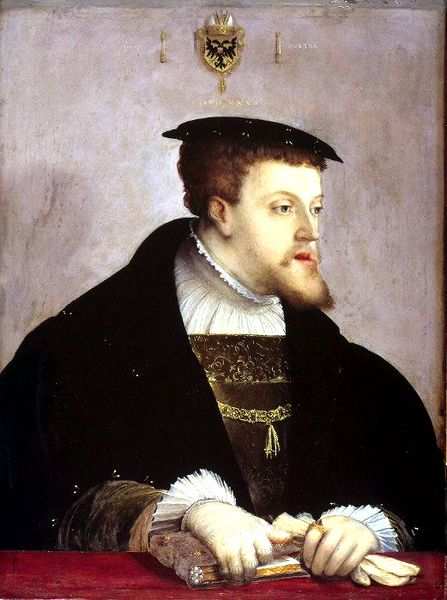
Charles V, as titular Duke of Burgundy in 1506, was Holy Roman King, archduke of Austria of the year 1519, king of Spain of the year 1516 and lord of the Netherlands.
The feudal idea of Absolute monarchy was resurrected by Charles V, who spent much of his time protecting the legitimacy of the Roman Empire from the Protestant Reformation, the expansion of the Ottoman Empire, and several wars with France.
The Spanish Conquistador Hernan Cortés and Francisco Pizarro ratified both the Spanish Conquest of the Aztecs and Incas, as well as the establishment by the Walser German family for the legendary “The Dorado.”
8). HENRY VII
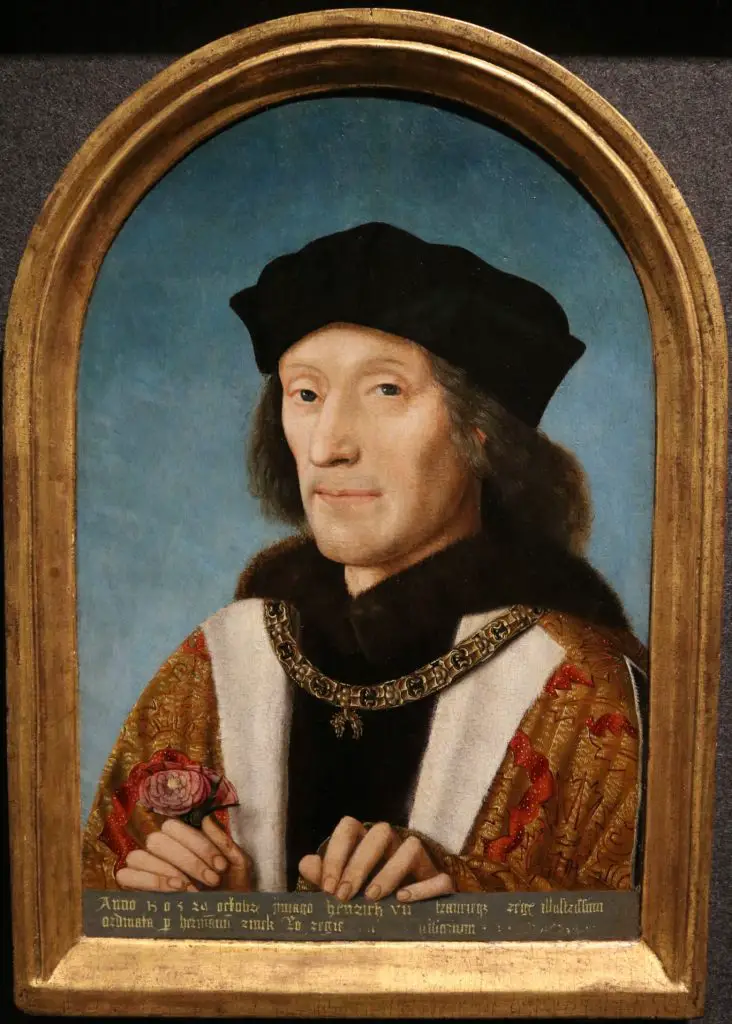
From 1509 to his death in 1547, Henry VIII was King of England. Often known as Royal Navy Father, Henry invested extensively in the navy from a small to over 50 naval ships and founded the Naval Board.
Henry was always known by his name. Henry is known domestically for his revolutionary reforms in the English constitution, which led him to the principle of the sacred right to the monarchy.
They had also been famous throughout his administration: Thomas Wolsey, Thomas More, Thomas Cromwell, Richard Rich, and Thomas Cranmer. Henry’s contemporaries saw him as a beautiful, learned, and satisfied king. He is one of the most charismatic kings on the throne of Britain.
7). FERDINAND AND ISABELLA
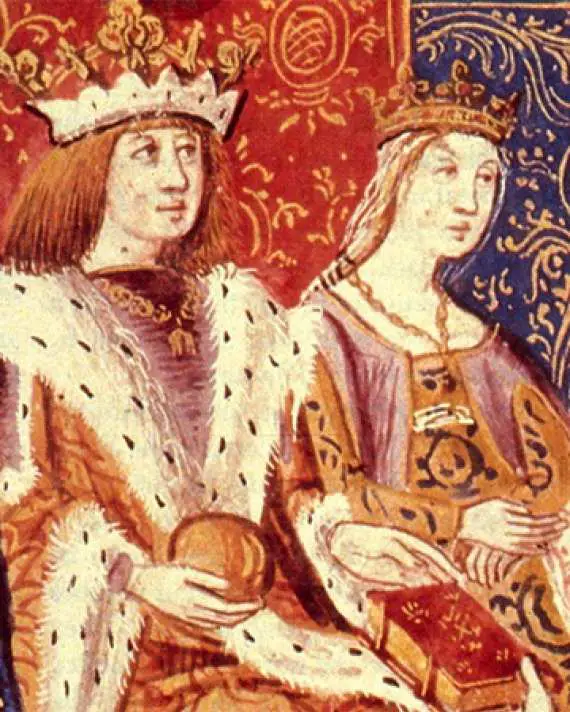
Isabella, I became Queen in Castile in 1474 and Queen of Aragon in 1479 and reigned over dynastically united Spain with her spouse, Ferdinand II, king of Aragon of 1479 and King of Castile of 1474 by marriage with his wife Isabella I, dynastically united Spain. Ferdinand became considered the first king of Spain by his marriage, described as the first king of Spain.
As a result of marriage in 1474, when Isabella retained the crown of the Castile, he became King of Jure uxoris in the name of Ferdinand V, and then died in 1504.
With the death of Isabella, with the terms of the pre-Nuptial agreement and the final will and will of Isabella, the Castile couronne gave to their daughter Joanna, and Ferdinand lost his monarchical status in Castile. Upon the death of Ferdinand ‘s son Joanna’s the nephew of Ferdinand, Charles I, was chosen to rule over all but Portugal. the Kingdom of Iberia.
6). CHARLEMAGNE
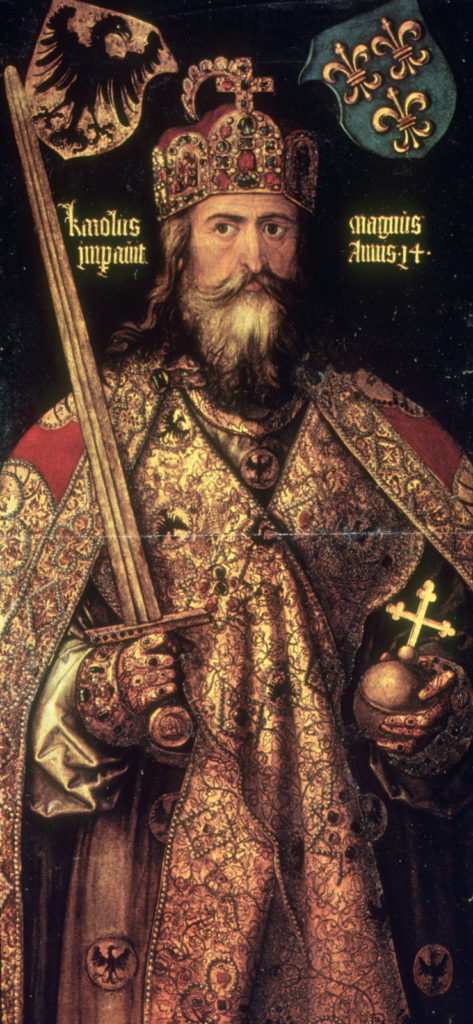
The King of the Franks from 768, the King of the Lombard’s from 774 and the Emperor of the Romans from 800, had been Charlemagne, or Charles the Great, called Charles I. After the collapse of the Western Roman Empire three centuries earlier, he was the first known emperor to rule from Western Europe.
Following his fathers’ death in 768, he began co-ruling with his brother Carloman I. Carloman died suddenly in December 771, when Charlemagne left the only Frankish kingdom ruler under unexplained circumstances.
For the first time since the Classical Roman Empire and uniting areas of Europe that had never been under the Frankish or the Roman control in the West, Charlemagne was called a Father in Europe.
Charlemagne had a less positive outlook on the Eastern Orthodox Church because of his support of the Filioque and that the Popes preferred him as Emperor over the Byzantine Empress Irene of Athens, the first woman empress.
5). CLOVIS I
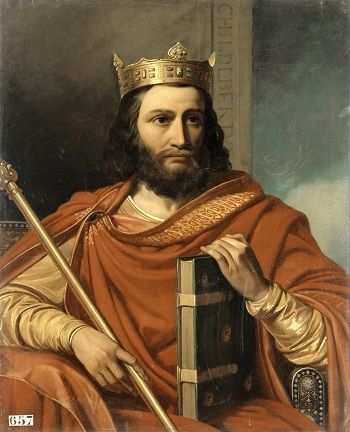
Clovis was the first Frank king to put together under the rule of one monarch all Frankish tribes, changed the leadership style from a royal chief to a monarch by one king and ensuring that the kingdom was passed to his descendants.
As King of the Salian Franks, Clovis succeeded Childeric I, his predecessor, in 481, and eventually came to rule a territory from the present South of the Netherlands to the north of France, comparable in Roman terms to Gallia Belgica.
Clovis defeated several smaller Frankish tribes on the northeastern portion of Gaul or in present-day France when he died in either 511 or 513 of them. In the history of France Clovis is significant as the first king of France. Three centuries later Charlemagne ‘s coalition with the Roman bishop and by the middle of the 10th C.
under Otto I of the Great, the product of the early Roman Empire, the acceptance of Catholicism by Clovis led to a large conversion of the Frankish peoples and the religious unity of modern France, Belgium, and Germany.
4). CONSTANTINE THE GREAT
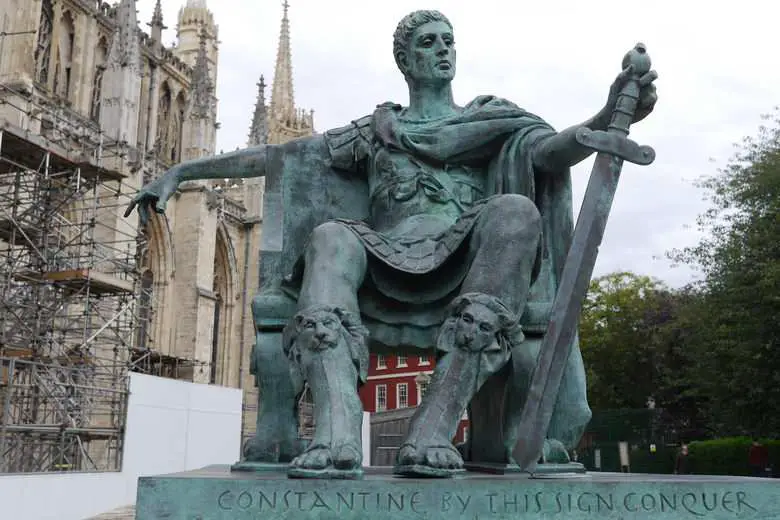
Constantin the Great was the Roman emperor who ruled between 306 and 337 June, also known as Constantine I. To order to consolidate the empire, Constantine carried out political, cultural, social, and military reforms.
Constantine was first to be converted to Christendom by the Roman Emperor. In the history of the Roman Empire, Constantine represented a distinct period. This was then the seat of the Empire for thousands of years.
Early historians referred to the former Western Roman Empire as the Byzantine Empire.
3). AUGUSTUS
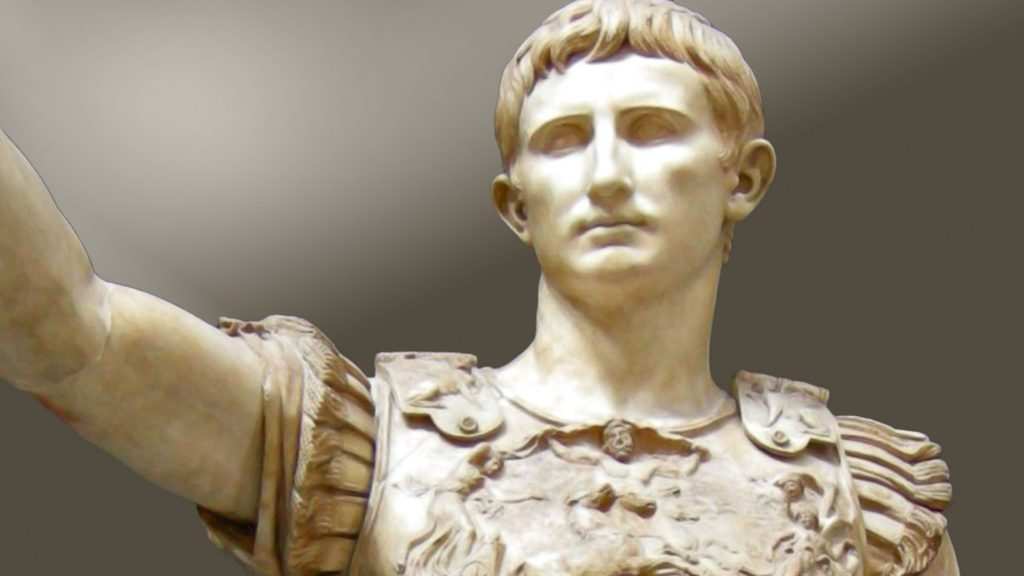
Augustus was a Roman political man and military leader who, from the 27 ADS until he died in AD, was the first emperor of the Roman Empire.
Given the raging wars of colonial conquest on the Empire frontiers and the yearlong civil war known as the Four Emperors Year over colonial succession, the Roman world has been relatively free of large-scale disputes for more than two centuries. The Triumvirate split the Roman Empire and ruled as a de facto tyrant after their victory at the battle of Philippi.
Augustus, through the Rule of the Roman Senate, imperial courts, and legislative bodies, re-establishes the outward façade of this Independence Republic following the extinction of the Second Triumvirates. He updated the Roman tax code, set up official postal code road networks, formed a standing army, founded the Pretorian Military, formed the official Rome police and firefighter services, and restored most of Rome during his rule.
2). JULIUS CAESAR
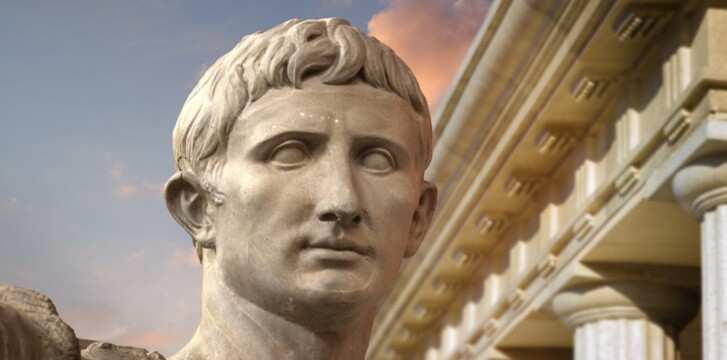
The general and the statesman of Roma Gaius Julius Caesar played a significant part in the events leading to the demise of the Roman Republic and the rise of the Roman Empire.
The First Triumvirate, a political coalition governing the Roman government for several years, was established in 60 BC by Caesar, Crassus, and Pompey. By a series of military victories over the Gallic Wars completed by 51 BC, Caesar became one of the most powerful politicians in the Roman Republic.
The Senate ordered Caesar to withdraw from military command and return to Rome when the Gallic Wars had been concluded. The title “Caesar” was used all over the Roman Empire and gave rise to modern cognates, such as the emperor and the tsar.
1). ALEXANDER THE GREAT
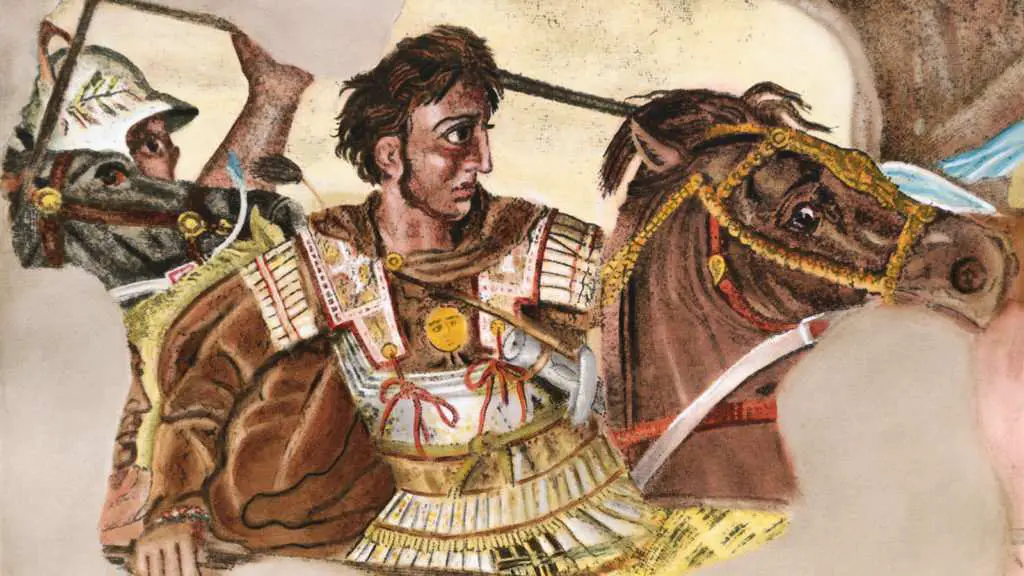
Alexander the Great was the king of the ancient Greek Kingdom of Macedonia and was a member of the Argead dynasty.
Alexander the Great. Alexander has been given the general authority of Greece to begin a mission to bring the Greeks towards a Pan-Hellenic invasion of Persia by his sons. In a series of decisive fights, especially the battles of Issus and Gaugamela, Alexander broke Persian power as a result of Anatolia ‘s conquest.
After that, the Achaemenid Empire was overthrown by the Persian King Darius III. In the years after he died, a series of civil wars snapped his rule and led to Alexander’s surviving generals and heirs forming many states under the Diadochi ‘s influence.
The settlement of Aleksandr’s by Greek colonists and the consequent spread of Greek culture to the East culminated in a new Hellene civilization which, until the Genocide of Greece in the 1920s, was still evident in the Byzantine tradition in the mid-15th century AD and Greek speakers in central and the far East in Anatolia.
Top 10 Lists of the people, things, places, most expensive, animals, most popular, luxury and high rankings of world. World's Top Insider focuses on the top ten lists of best, greatest and top rankings in the world.



